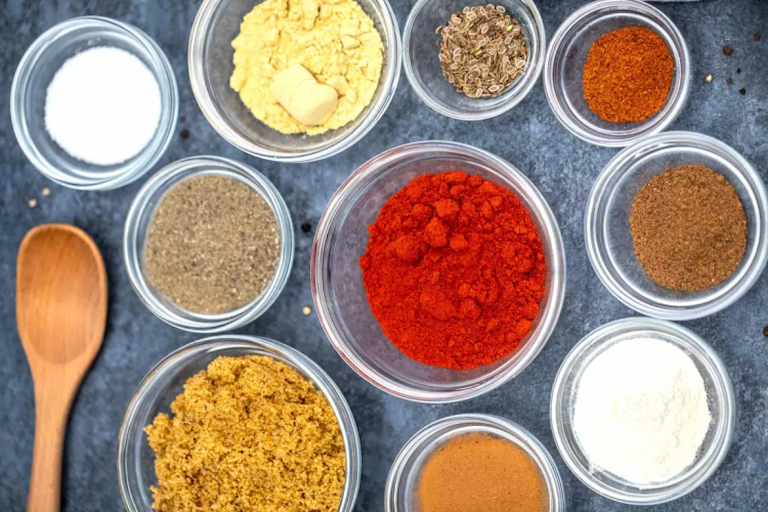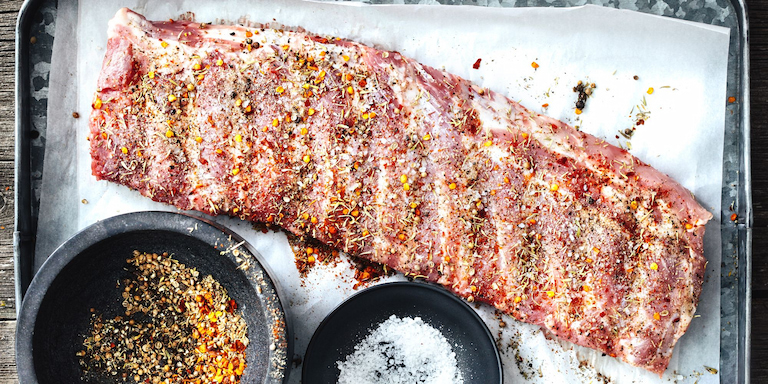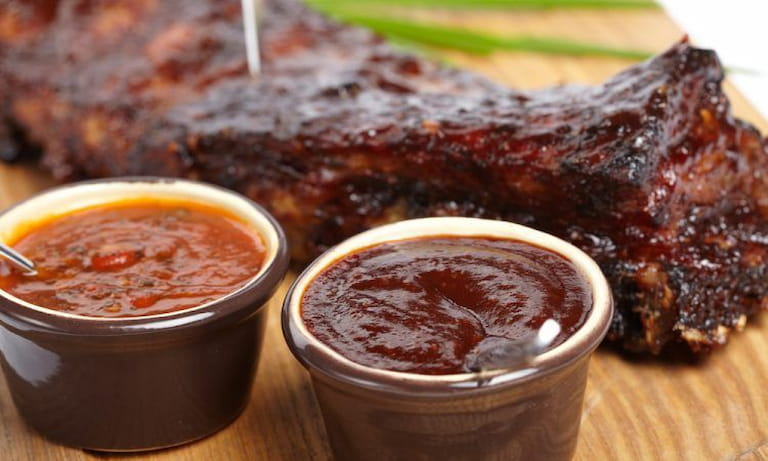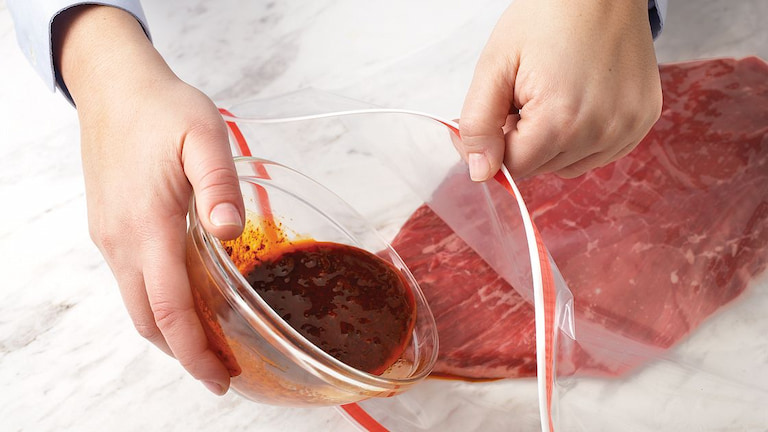They’re found at the footy, at your favourite hardware store and sizzling from the neighbour’s backyard. The BBQ is truly an irreplaceable Aussie tradition, and much revolves it. Birthdays, anniversaries, weddings, or just a friendly get together. Of course, you’ll also have a cold beer in the Esky, a few snacks, and Aussie dessert to complete the picture. But the centre stage goes to the barbie. Your choice of meats, how they’re done, and the flavours oozing from each bite is what gets the conversation going.
And it’s not just about throwing a few lamb chops, beef steaks or snags on the grill. Meat needs to be properly prepared to get the best flavours, tastes and appraisals from family and friends. Before dipping your favourite cut into that BBQ sauce, you’ll want the meat to have some character of its own. Step in BBQ rubs and spices.
What are BBQ Rubs?
BBQ rubs are mixtures of herbs, spices and condiments, like salt, sugar and pepper used to coat your favourite meats. You’ll have most sitting on your pantry shelf, ready to be used. All meat can be seasoned and prepared with a rub. Red meats, like pork chops, any type of poultry, chicken drumsticks or turkey breast, or fresh or saltwater fish can be flavoured before its grilled. What you choose to add is totally up to you, and some experimentation can reveal tasty surprises. But every rub contains a decent amount of salt.

The role of salt is beyond doubt. It tenderizes the meat by loosening up the fibres. Your tenderloin steak or short ribs won’t disappear on the barbie with the right amount. Salt lets the juices do their work, so you don’t end up with a dry, crusted coat and meat that is rare inside. To get the best result rub it in gently about half an hour before putting the meat on the grill, to let it settle.
Ordinary table salt, fine grains, kosher salt with a bit more substance and flaky sea salt are all good starting points for any BBQ rubs and spices. Specialty salts, like Himalayan salt, smoked salt and flavoured salt, can add different wisps of flavour to your meat.
To balance out the savouriness, sugar is added. You can use equal amounts to the salt, or a little less, depending on the taste you’re after. Melted sugar caramelises, so you don’t want this to overrun the flavour. Besides ordinary white sugar, brown sugar, honey, and even some maple syrup can do wonders.

Salt and sugar, in the ratio of your choice, will determine which flavours you end up with. These can be further enhanced with sprinklings of different kinds of powders, like onion, garlic or chilli powder, a range of various peppers, like black, green, white, cayenne, jalapeno, chipotle and ground, dried spices including cumin, oregano, thyme, cilantro and parsley. And let’s not forget paprika. Paprika comes in as hot, sweet or smoked paprika, each with a different taste. Peppers and paprika will add that chilli tinge, just don’t overdo it.
Dry or Wet Rubs?
A dry rub contains only dry ingredients. They all have some salt and sugar, and smaller amounts of the dried herbs and spices listed above. To get a decently rounded mix, use about half a cup of salt and sugar, and a teaspoon of your preferred herbs, spices and powders. Apply the mixture to your meat, and let it do its thing. When heat is applied, you’ll get a nice thin crust of different, succulent flavours.
If you want more pronounced flavours, add some liquid to the dry rub mix. Typically, a dash of oil, mustard or yoghurt applied to your meat cuts and marinated for about an hour is the way to go. Olive or avocado oil is generally the choice of most grillers. Keep this in the fridge until the barbie is fired up. Wet rubs get into the meat easier and release more moisture. You can also add some lime juice, chopped horseradish and natural onions for a bit more pungent taste.

Applying BBQ Rubs
Rubs are applied gently, so as not to spoil the texture of the meat. You can keep them on anywhere between 15 minutes to 2 hours, depending on the meat and the ingredients in the rub. Dry rubs need less time, since they’re more about slight hints of flavours and tastes, whereas wet rubs need more time to soak into the meat and are generally better for thicker cuts.
Storing Rubs
Wet rubs can be used up to a few weeks since stored in the fridge, while properly sealed dry rubs can last up to a few months in dry areas at room temperatures. Try to get fresh produce as often as possible before making your BBQ rubs and spices.

Readymade Rubs
You’ll find both dry and wet readymade BBQ rubs for particular meat cuts. This includes all red meats, like beef, lamb and pork, and a variety of chicken and fish rubs. Some come in packaged sets so you can experiment with different tastes. Readymade rubs are sold in upscale supermarkets, delicatessens, BBQ stores and oddly enough a few brewing stores. Beer and BBQ, now that’s a combo you can’t resist.

